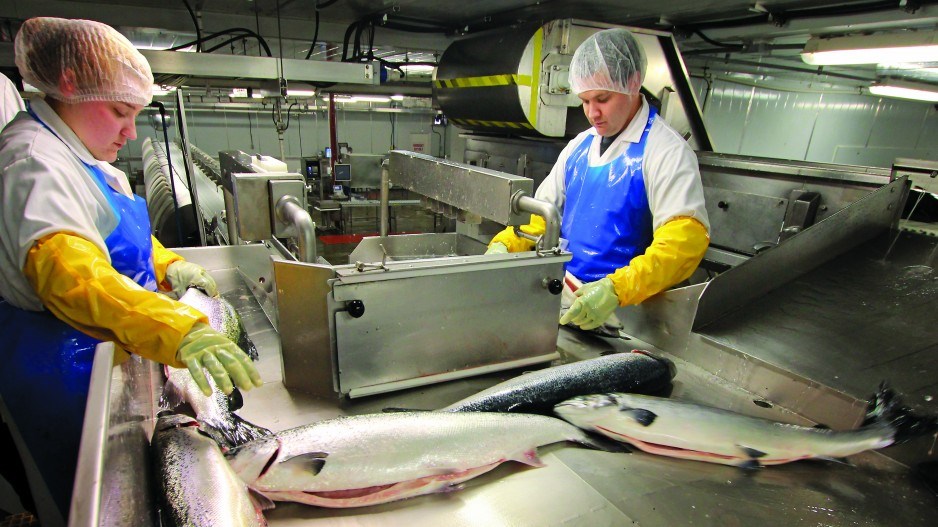The B.C. government is planning to place restrictions of the discharge of fish waste from salmon farming processing plants, and review the science behind the use of pesticides to treat ea lice in salmon farms.
B.C. Environment minister George Heyman announced December 20 that his ministry will begin a review of the waste that is discharged from processing plants for the salmon farming industry.
"Serious and widespread concerns about effluent from fish processing operations and finfish aquaculture practices have been raised, and the government is taking action," Heyman said in a news release.
"British Columbians expect us to keep our water safe. We'll do this by developing a comprehensive set of measures that will apply to the finfish aquaculture and fish processing industry along our coast. We will work with industry, First Nations and local communities to strengthen regulations and make sure any discharge into the water is safe and does not contaminate wild salmon."
The biggest concern with waste from fish farm processing is that it might contain chemicals, pesticides or pathogens that could be harmful to wild fish.
Heyman’s ministry also plans to review the use of pesticides to treat sea lice in salmon farms. That review will consider whether the treatments used to manage sea lice in salmon farms are “scientifically supported and are consistent with best practices in other jurisdictions.”
"Our bottom line is to make sure that we protect our wild salmon and keep harmful substances from entering the marine environment as a result of these operations," said Heyman.
Alexandra Morton, who has led the campaign against salmon farms in B.C., welcomed the measures announced by Heyman. Morton has recently tested "blood water" samples from fish farms for viruses. She said Heyman has stated he would like to have her samples.
Jeremy Dunn, executive director for the BC Salmon Farmers Association, also welcomed the government's review of sea lice treatments and wastewater discharges from fish processing plants.
“Our members operate five of 35 fish processing plants authorized for wastewater discharge in B.C., and we agree with government that permitting should be based on the best available science and best practices in other jurisdictions,” he said.
The measures announced December 20 were not prompted by a recently completed review of salmon farming, according to the ministry's communications department.
A special advisory panel on finfish aquaculture, struck by the previous Liberal government, was only expected to conclude its work and submit a report to the government by the end of this year.




